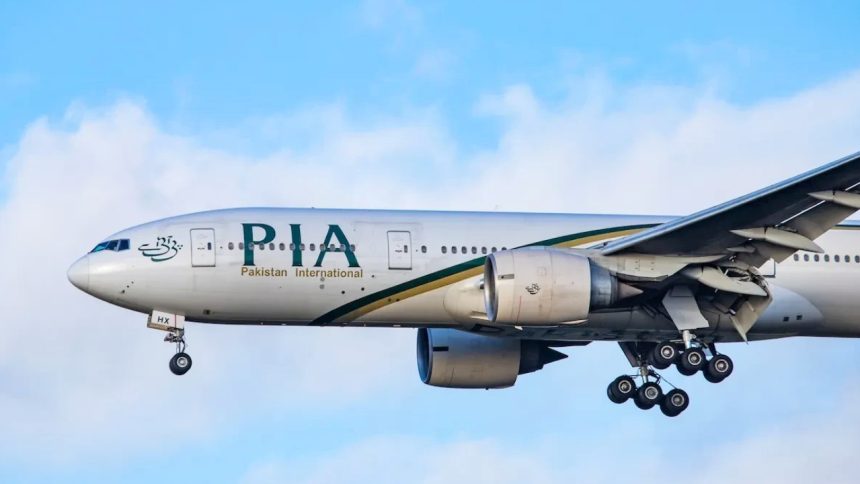Financial Minister Muhammad Aurangzeb has announced that the Pakistan International Airlines (PIA), along with three power distribution companies, will be privatized by year-end.
The announcement came after repeated delays in the privatization process, the latest being last week when the auction scheduled for October 1 was put off until October 31. Successive government have resisted the sale of the national flag carrier mainly to ward off the wrath of the stakeholders, especially the current and retired employees.
However, now this unpopular decision comes as a string attached to the International Monetary Fund’s $7 billion bailout package approved last week to ensure financial stability in Pakistan. As a precondition, the country will have to sell off more than 51 percent of its shares in the money pit. The 37-month bailout plan includes a condition for Pakistan to apply ‘sensible’ measures and revamp its troubled state-run companies.
Talking to a private news channel, Aurangzeb stated that auction of the ‘sick’ units would be wrapped up before the year ends. Moreover, he also hinted at outsourcing the operations of Islamabad and Karachi airports, but in phases. It may be mentioned here that the government had revealed in June that six of eight firms had been selected to bid for the national airlines.
Authorities had earlier planned to wrap up the sale by Independence Day (August 14). However, the auction was cancelled because the investors sought time to examine the airline’s updated financial statements and lease documents. They also sought clarity on the status of flights to European, which are not operational at the moment. The auction dates in September and October were also rescheduled, and now the bidding will be held on the new dates.
Often referred to as ‘the white elephant’, the national flag carrier’s financial woes are not something new. The airline has amassed more than Rs800 billion ($2.86 billion) in cumulative losses. Meanwhile, its total asset value is estimated at around Rs160 billion ($572 million). This huge gap between the assets and liabilities has made the sale of the airlines even more pressing.
In May, Prime Minister Shehbaz Sharif had shared his plans to privatize all public sector companies, except for strategic entities. Privatization of loss-making state-owned enterprises has been a longstanding recommendation by the International Monetary Fund, mainly because Pakistan has been unable to overcome its financing challenges.
The global lender pointed out that the state-owned enterprises in Pakistan hold large assets, accounting for 44 percent of the country’s gross domestic product, but they still offer limited employment opportunities. Nearly half of these companies were operating at a loss in 2019, making their privatization essential for economic recovery. While past efforts to privatize state-owned enterprises have been inconsistent, officials are now under pressure to sell the companies off.
















